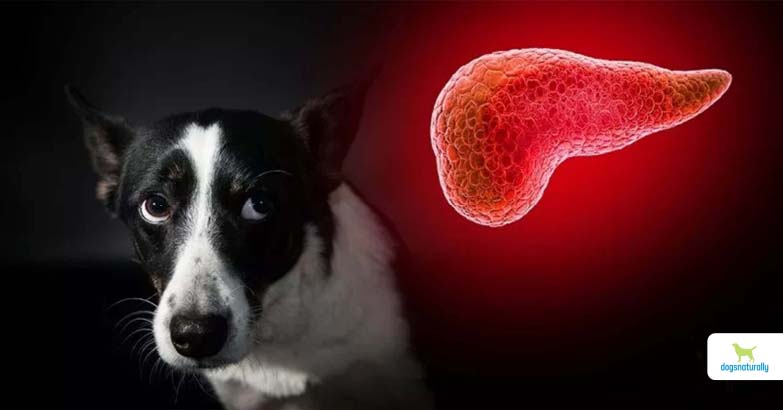
Insulinomas prevent the pancreas from functioning properly. Symptoms of Pancreatic Cancer in Dogs Lethargy Confusion Tremors or walking unsteadily Seizures or convulsions Unconsciousness or passing out due to low blood sugar Abdominal mass that you can see or feel Abdominal swelling Jaundice or.

Symptoms of Pancreatic Cancer in Dogs Lethargy Confusion Tremors or walking unsteadily Seizures or convulsions Unconsciousness or passing out due to low blood sugar Abdominal mass that you can see or feel Abdominal swelling Jaundice or.
My dog has pancreatic cancer. Symptoms of Pancreatic Cancer in Dogs Lethargy Confusion Tremors or walking unsteadily Seizures or convulsions Unconsciousness or passing out due to low blood sugar Abdominal mass that you can see or feel Abdominal swelling Jaundice or. Dogs diagnosed with pancreatic cancer generally live anywhere from 6 months to 2 years depending on the severity of the cancer and the treatment plan used. Sadly this is beacuse many times pancreatic cancer is found late once the tumor is in advanced stages and has metastasized spread to other areas of the body.
For example a dog with pancreatic cancer may show signs such as. Appetite loss Weight loss Lethargy Vomiting Abdominal distension Hyperglycemia elevated blood sugar level Ascites fluid accumulation in the peritoneal cavity Jaundice the skin and mucous membranes may appear yellow. What is Pancreatic Cancer Insulinoma.
Insulinoma is a cancerous growth also known as a tumor located on the pancreas in dogs. A healthy pancreas helps produce insulin which controls the glucose levels in the dogs body. Insulinomas prevent the pancreas from functioning properly.
Altogether the most common pancreatic cancer in dogs and cats are insulinomas followed by adenocarcinomas. Both of these tumors are more common in dogs than cats. What causes pancreatic tumors.
The reason why a particular pet may develop this or any tumor or cancer is not straightforward. Very few tumors and cancers have a single known cause. Pancreatic cancer develops as abnormal pancreatic cells multiply rapidly in the pancreas.
These cells dont die but continue growing to form tumours which in time can result in the death of the normal surrounding pancreatic tissue. Canine pancreatic cancer is rare but the cancerous tumours adenocarcinomas are aggressive and malignant. My dog has been diagnosed with Pancreatic Cancer.
I know he wont last. But what should I be looking for to help me - Answered by a verified Dog Specialist. My dog was diagnosed on Thursday with pancreatic cancer and our vet recommended putting him to sleep as the tumor was causing a bowel obstruction.
Im concerned and confused because 2-weeks earlier we had a fatty tumor removed from his leg and we agreed to the additional pre-lab blood work. The answer to this question will vary based on the cancer your dog is diagnosed with. Based on your dogs specific diagnosis your vet will try their best to.
Pancreatic adenocarcinomas cancers affecting enzyme-secreting cells are more common – and much more aggressive – than insulinomas. Symptoms include abdominal pain vomiting and weight loss. Usually a vet can feel a mass in an affected dogs abdomen.
Since these tumors often block the bile duct jaundice is another common sign. Pancreatic cancer in dogs. Several types of cancer have been reported in the pancreas.
These tumours can be either benign or malignant. The most common form of malignant pancreatic cancer in dogs is called pancreatic adenocarcinomas. These tumours do not respond well to treatment and are often not detected until the cancer has already spread.
Pancreatic Adenocarcinoma in Dogs A carcinoma is a type of malignant tumor found in both humans and animals and tends to be particularly malignant with recurring growth after surgical excision. Adenocarcinomas are characterized as glandular in structure andor originating in the glandular tissue. Pancreatic adenocarcinomas are the most common malignant tumor of the exocrine pancreas in dogs.
A few other types of cancer have also been reported in the pancreas. A diagnosis may be made based on a combination of blood tests x-rays ultrasonography biopsy or exploratory surgery as appropriate. Pancreatitis cancer is very rare in dogs.
However if your dog shows any symptoms such as confusion loss of appetite and sleep weakness. It is recommended to visit your vet. Since the spread will have already taken place once it is diagnosed it is important to follow the medication or surgery whatever advised by the vet.
Pancreatic cancer is often hard to detect until the condition is at advanced stages which is why the prognosis for dogs with this type of cancer is usually dire. Treatment for pancreatic cancers. Canine pancreatic cancer is a very serious health problem not only because it is often difficult to diagnose but the tumors within the pancreas are often inoperable.
Unfortunately the pancreas is also a common place for malignant tumors to form and can cause problems with. Canine PancreaticCancer Symptoms Symptoms for Pancreatic Cancer in Dogsoften arent apparentuntil advancedstages. Physical collapse loss of consciousness seizures and extreme weakness are common but because the insulin is released periodically symptoms are not consistent.